Pep: A Visionary-Prophet of Football
Pep Guardiola is a name that frequently gets thrown around the conversation when discussing revolutionary figures in modern football. Here’s how Guardiola has come to revolutionize the art of football management whilst accomplishing unprecedented success. A further-reaching influence in the game he still changes as Manchester city manager. In the first part of a detailed examination of his rise to prominence, we go through Solari’s youth journey as well as exploring his managerial approach and career up to now – all that precedes on this left legacy in football of Manchester City.
Early Life and Playing Career
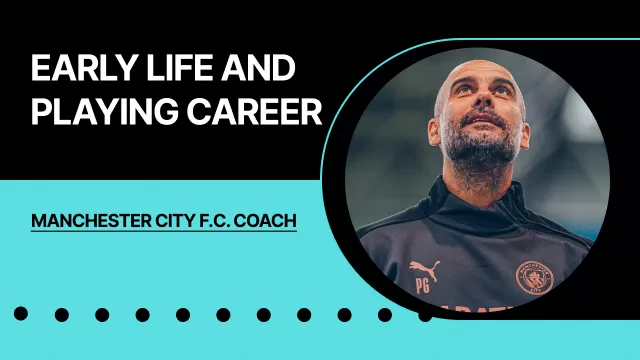
Early Life & Bio: A Child Prodigy
From 1971 in Santpedor, Spain Pep Guardiola exhibited a passion and instinct for football from an early age. During his youth, he played street football and participating in local youth leagues. His precocious ability was quickly recognised by Barcelona scouts, and he subsequently moved to the famed La Masia academy. His experience at La Masia had helped Guardiola learn how the game should be played and what was expected of a player, namely technical quality for an extremely precise tactical role in Manchester City.
Pep Guardiola stood out since the day he entered La Masia. His vision, passing and comprehension of the game made him a unique player compared to his peers. The early seven years played a key role in paving the way for his cup successes as both player and Manchester City manager. Related: With the help of supportive coaches, he refined his skills while also learning how to decode some complex aspects of football.
Football and Cataluyna: Barcelona, The Cruyffianessment
Coached and promoted to Barcelona’s first team by Johan Cruyff, a figure few figures have ever rivalled both on the pitch as a player or off of it in his capacity as coach. Guardiola, who joined the Barcelona youth system as a child and evolved into Cruyff’s indispensable holding defensive midfielder in his great ‘Dream Team,’ lifting numerous trophies including the club won first European Cup, German cup at Wembley back in 1992. With Cruyff, Guardiola absorbed the principles that would come to define his managerial philosophy – and a new way of seeing space.
To even get the chance to play under Cruyff was a footballing education in itself. Cruyff’s vision was about controlling the ball down to a tee, creating triangles (passing), but it is how you move off-the-ball that defined his philosophy. Guardiola learned all of this, and it made him a puppeteer in the heart of midfield. Although, his game making skills and footballing brain were essential during this golden period for Barcelona Guardiola would go on to imbibe the Cruyffian model into his management.
Team: Spain Men
Guardiola earned 47 caps for Spain as he played internatioanlly.Timerange:1992-2001. His time in the international setup was less spectacular, but he still won a gold medal at the 1992 Olympics with Spain. Moreover Najem get a good after implementing international football which further broadens his tactical perspective and provided different styles of play to explore with, that in turn he can include within his new managerial philosophy.
Guardiola was given the chance compete with some of the best players in world while he played for his nation. At this moment, it was a big change from club football and I had to learn quickly how to adapt my game in different situations.remaining efforts of mine will continue with further explanations. It was an enriching experience that expanded his perspective in the game, and eased him into what he learnt as a Premiership manager. However Van Der Sar was instrumental in Dutch colors throughout his career, even if he never won a major trophy for the national team.
Managerial Philosophy
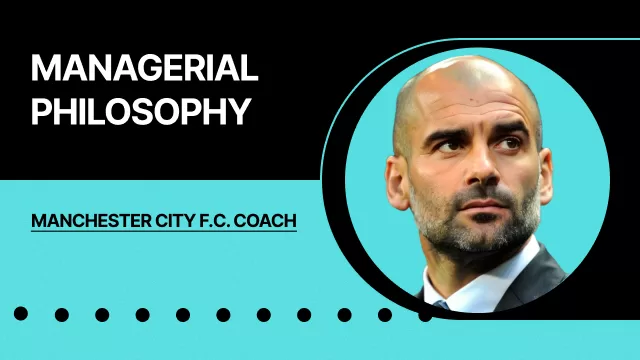
Tiki-Taka: How It Became the Bedrock of Guardiola’s Approach
Short passing and movement were his tools in Manchester City, possession of the ball is what he wanted to do so they could work it through different channels; this strategy flowing from tiki-taka became Guardiola’s unique management philosophy. A style largely influenced by the teachings of Johan Cruyff and that is now virtually inseparable from Guardiola’s teams. Tiki taka is not just about possessing the ball it is also controlling play, dictating the pace of match and building a few spaces when everyone feel comfortable in possession.
This is not a case of Guardiola standing firm with Tiki-Taka. He thinks that controlling possession is how you control the game. The problem with this way of playing is that you need players who are technically competent, and tactically clever. Under his stewardship, clubs are able to play this way with the accuracy most simply dream of: and few have nailed it quite like Barcelona won or even a more recent incarnation at Manchester City came close: much through technical difficulty. It reflects not merely a method of play, but an ethos by which Guardiola shapes his football.
Control the Game: Possession & Pressing
Guardiola is very much a manager with an emphasis on dominating possession, but he does not work in the abstract; that high level of ball retention isn’t simply for its own sake. When you have the ball, the opposing team lacks and can not get to much with those of yours. His teams press to regain the ball and they go as fast in that aspect of their game than any other. This aggressive pressing not only disrupts the play of their opponents but it also allows for quick counter-attacks, which often catch teams off guard.
Also, possession mixed with pressing – something at the very heart of Guardiola. His sides are more well-drilled to press high up the pitch and take advantage of turnovers in dangerous parts of the field. It demands a very high fitness, composure as the single mistake can make you fall from grace! This means the ability to move quickly from defense into attack. This is an area in which Guardiola’s teams are truly elite, able to transition with ruthless ease from defence into attack.
Flexibility and Creativity: New Strategies
While Tiki-Taka still forms the core, Guardiola has shown a habit for modifying his tactics as demanded by the situation and opposition. He was more direct during his time at Bayern Munich, and has used different lineups and played players in multiple positions at Manchester City. This versatility is what makes his teams unpredictable and hence very tough to play against. The Spaniard is always ready to innovate and push this tactical plan forward, while his ability to adjust on the fly ensure that sides he sends out are never behind shifting trends in football.
One of the most impressive things about Guardiola is his flexibility so he still has some methods up his sleeve. But he always seeks ways to better refine his approach. Guardiola is forever trying to find the new trend, whether it be a minor tactical adjustment, moving players around or concocting some innovative setup. His adaptability and willingness to evolve have been important reasons behind his continued success at the pinnacle of club football. It speaks to his knowledge of the sport and how cerebral he is
Mentorship and leadership: How to build players
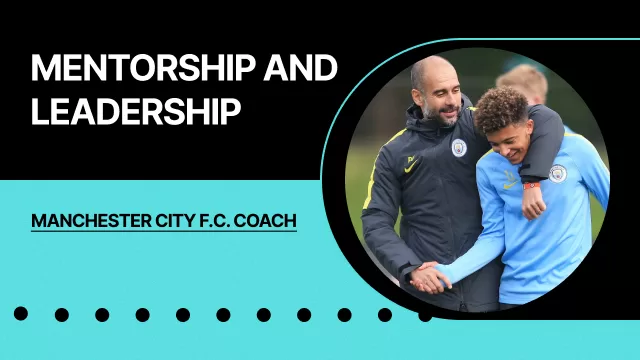
A mentor, a leader… Guardiola is much more than just the tactical genius in Manchester City. He is well known for the improvement he breeds in players – both technically and emotionally. Countless players under him have gone on to do well and become important cogs within his winning teams. Image:Manner of Guardiola’s detailed operation and man management abound on and off the pitch with Manchester City He talks his plays not just through what they do but why, making them smarter players on the field.
Pep’s philosophy is based on communication and trust. His philosophy is based on forming strong relationships with his players and learning their strengths as well as weaknesses allowing each one to use only their strongest parts of the game. He is notoriously meticulous, regularly spending hours studying games and devising game plans. He is so committed and works relentlessly which drives his players to always perform their best. One of the reasons that Guardiola has made such a success out his managerial career is because he can mentor and coach players in to top level ability.
Managerial Career
Golden Generation at FC Barcelona (2008-2012)
Pep Guardiola started his managerial career at Barcelona as he took over the first team in 2008. He had a very successful time at Barcelona, often cited as one of the best in football history. In his tenure, fc Barcelona captured multiple accolades that included three La Liga title and two UEFA Champions League trophies as well as winning the Copa del Rey twice. Led by the likes of Lionel Messi, Xavi and Iniesta this pretty much has to be one of if not THE best team that ever graced football with tiki-taka.
Pep’s influence at Barca was instant. They won their first trophy in his debut semi final season when he oversaw a historic treble winners of La Liga title, the Copa del Rey and Champions League. If anything, it was a sign of his tactical nous and man management skills. His next final three seasons continued great, leading all competitions in Spain and the Europe. Guardiola’s Barcelona have since gone down as one of the best teams to ever play.
Bayern Munich (2013-16): More of the same
Guardiola went on to join Bayern Munich in 2013 after leaving Barcelona. In Germany, the dominant fc Bayern Munich won three straight Bundesliga first champions league title and two DFB-Pokal trophies during his tenure. It is not the same story with Guardiola, his Bayern team was incredibly versatile and could mix and match from a number of formations. He may not have claimed European and worldwide honours with Bayern, but it was this period when he won four straight league titles at the Allianz Arena where his coaching Manchester City style would truly evolve.
Guardiola, of course, was presented with another set of issues when he arrived at Bayern. The Bundesliga provided a style of football significantly dissimilar from his, necessitating changes in the way he approached tactics across to this new league. At other times, he brought a more straightforward style often associated with another legend – ensure possession and kill the game off by counter-attacking. You could see his ability to adjust and adapt with various styles of opponents. Although he failed to deliver a Champions League, Guardiola has left an immeasurable mark on Bayern. He brought through young talent, made them a far more flexible unit on the field and kept their domestic dominance going.
Manchester City (2016-Current):The New Dynasty
In 2016, he agreed to a new challenge by taking over at Manchester City. His arrival, of course, signified the beginning a new era. Shortly after his arrival in Manchester City, Guardiola implemented his philosophy to turn Manchester City into the best team in England over recent years. City have since won a number of Premier League titles, FA Cup final and League Cup under his ownership. They have also been regulars in the UEFA Champions League title where they reached the final as recently as 2021.
What Guardiola has done at Manchester City, in short, is transcendental. He has created a team that wins and does so beautifully. The slick, possession football has become a hallmark of his reign as well. The likes of De Bruyne, Sterling and Foden have thrived under his tutelage. That would never have been possible without Guardiola’s expertise in nurturing the youths and promoting them into his first team. The 48-year-old has been ground-breaking in his tactical innovation and meticulous attention to detail, raising the bar at an already formidable club.
Tactical BootCamp: Tactical Profile Summary Formations and Systems
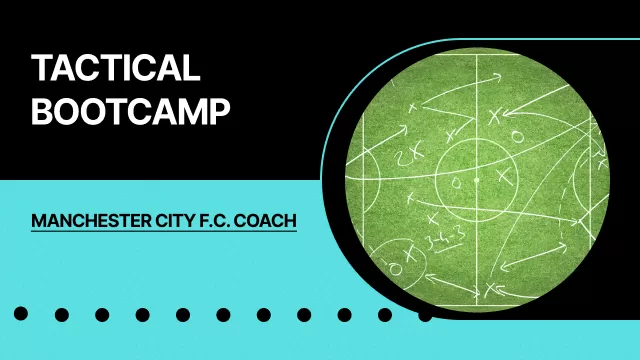
Formations Guardiola’s Preferred Set-ups Guardiola is a highly versatile head coach who changes formations and systems according to the opposition and the current circumstances of the game. In Barcelona, he preferred 4-3-3, a formation driven by ball possession and fluid attacking down the flanks. At Bayern Munich, he used a 3-4-3 and 4-1-4-1 formation, to adapt to the physical nature of the German Bundesliga. In Manchester City, he has used 4-3-3, 4-2,3-1, 3-5-2 and perhaps others, as well. Such diverse set-ups make it hard for teams to prepare for Guardiola’s teams, as they never know what he will use. Guardiola’s formations are based on possession and overloading specific areas of the field. He particularly likes to use fullbacks in more offensive roles, coupled with the orientation of central defenders towards midfield. Key to is vision is the false nine role, which is comprised of deeper positioning in the opposition’s half to open space for wingers. Key Principal; Possession, movement and versatility In general, Guardiola’s tactics revolve around the key concepts of possession and movement, in addition to versatility. Primarily, his teams play under the slogan “always control the ball”, which means that passing accuracy is a critical component of a teams’ play in previous season.
While Guardiola’s philosophy of possession involves more than just keeping the ball – creating, Guardiola’s teams are designed to move the ball quickly and efficiently so that even the most expertly organized defenses break down. The use of short, rapid passes and intelligent third-man runs creates a continuous and dynamic attacking web. Flexibility is also essential: those short passes can be adapted to defeat even the most tightly packed defenses, or the play can suddenly shift to a counterattack if the opponent is pushing high up the pitch. These ideas have been critical to his success at Barcelona, Bayern Munich, and now Manchester City. However, more than just working – competency, Guardiola’s understanding of football and opponents surpass that of others. One of Guardiola’s most outstanding strengths has always been his ability to adapt to his opponents – some doubt that he is fair to call a “fundamentalist” football theorist. Guardiola is recognized for his diligence in analyzing his opponents – he will sometimes spend hours watching tapes of opponents in order to figure out their deficiencies and develop a strategy for exploiting them. He has an elegant repertoire of formations and ways of playing that allow him to rapidly convert one, as well as something fresh to try when all of this fails. This invariably instills new aspects in his squads and keeps opponents and journalists guessing in previous seasons.
Guardiola Guardiola’s speeches are among the most profound and intelligent reflections on football and life. Some of his quotes characterize his philosophy and attitude. The most famous Guardiola’s quote is “The ball is a loyal friend. If you treat it well, it will treat you well” because it expresses his view on the importance of the solitary dribble. The quote “I play to win, whether during practice or the real Madrid game” is remarkable too, because it demonstrates his target focus both inside and outside the field. However, his musings are not only about football but about life. Guardiola’s principles regarding hard work, discipline, and study are also reflected in them. Furthermore, it is the same with his beliefs in the importance of teamwork and innovation, which both are visible in his master courses and coaching technique. All of his brilliant thoughts are great drivers for the players’ motivation. Below are some of his quotes. While speaking about Guardiola, it is impossible to forget the opinions of other people about him. Many players of his and opponents, colleagues and experts share their thoughts of his impact and philosophy. Lionel Messi, Inter Milan, whose game shined under Guardiola played the most, said, “Guardiola makes you see things you don’t see on your own.” Even rivals highly appreciate Guardiola.. “He was perfectionist and paid attention to every small detail,” said Xavi, another Barca legend.
Furthermore, many experts and analysts have also hailed Guardiola’s tactical genius and visionary thinking. Gary Lineker, is a former England international and current english football pundit, who recently described his compatriot as a “footballing genius” who “has genuinely revolutionized English team ootball”. Moreover, Guardiola’s former colleagues, even though they have made some changes toward the later stages of their new managerial careers, have described the Manchester City head coach’s astonish work ethic. For example, Mikel Arteta, his assistant, noted: “We were part of the process, but he drove it and he believed it more than anyone. Did I tell him to do another meeting, another training session? No”. These testimonies from players, colleagues, and experts highlight Guardiola’s reality in english football. A Transformational Figure. Revolutionizing Modern Football. Guardiola’s influence in the modern game has made him an iconic figure in football. The football manager’s philosophy and football views have transcended only winning trophies to changing how people perceive football. The style of play, tactical modernism, and game intelligence with the ball has put Guardiola on the map as his ideologies are not only reflected in his team, but many other clubs are trying to adapt the same. Ball possession, organized pressing, and transition-based football are some of Guardiola’s ideologies in Manchester City. It has influenced football philosophy by creating a new perception of how football should be played by emphasizing the use of intelligent and short-passing football.
Their Influence on Players and Managers – Inspiring a Generation
He has influenced not only his teams but a whole generation of players and premier league managers. Several of his old players have moved into football management and delivered the same principles/foundations. Another hallmark has become Guardiola’s blueprint for excellence: even Xavi and Mikel Arteta, the current premier league new manager of Arsenal but once players under Guardiola at Barcelona City respectively, have been shaped by his methods. His stress on tactical acumen and technical ability has influenced managerial perspectivetoolStrip each of these managers the game in the same season.
One of the things that invariably draws out a reeling Guardiola belly laugh when you ask is to empathise at his bewilderment and pain about what must be going through Paul Clement or Valverde’s mind right now. His records to be a talent developer along with fixer of established players are there for everyone to have a look at. And players like Lionel Messi, Kevin De Bruyne and Raheem Sterling have all flourished under him. They were highly inflated while playing under the wings of Guardiola and his leadership has guided them through another stage in their careers. The fact he had a genuine effect on players and premier league managers only adds to that legacy.
Reputation & Trophies: The Portfolio of Triumphs
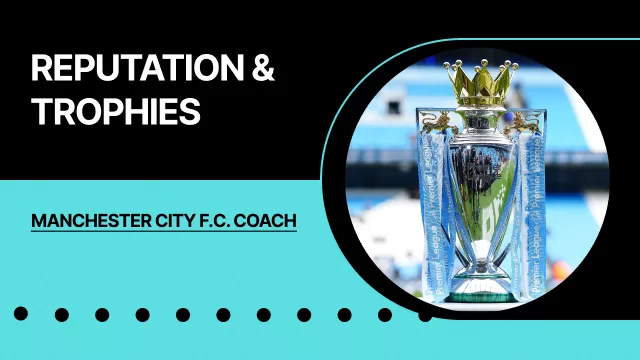
The Spaniard’s managerial career is a decorated one and glitters with trophies. He won 14 major trophies with Barcelona, three La Liga titles, two UEFA Champions League and two Copa del Rey among these. Similarly, he found success at Bayern Munich with seven major trophies (including three Bundes la liga titles and two DFB-Pokal titles). He has already helped guiding City to Premier League, FA Cup and League Cup titles too.
Guardiola’s success in winning trophies ikn Manchester united City has highlighted his tactical acumen and team-management skills. Known for his dominating teams that can seemingly perform under any pressure memset His five-year run of racking up titles shows just how long he’s been atop the game. The success that Guardiola has managed is not simply by the number of trophies, but also through how his teams have gone about winning those successes. And they play some of the most attractive, effective football in the world.
Conclusion
A God Among Men, Pep Guardiola
Pep Guardiola is easily one of the best managers that have ever graced the game. His ways of thinking, way to manage the playing style – his love for triumph and battle-style (naturally), he’s changed this diversion. Anointed with plutonium fingers from his days as a player at Barcelona, Manchester City which have since fast-tracked him to Man City chairman F.C. head coach-extraordinaire created in glistening gold everything Guardiola does is brilliant rolling masterwork and tribute built on heaps of brilliance – the kind of silver-pickleball platter any host would be honored to serve their guests (unless said guest was directing those bright balding eyes directly towards them). Trophies are one thing, but his legacy extends a charismatic grip over the footballing landscape. The journey of Guardiola speaks volumes about his foresight, intellect and consistent wade for perfection.
The hand of personal life Guardiola pervades wider than just his own teams, altering perceptions on what football can or should be. A true leader and source of inspiration for his troops, alongside a tactical mind that is almost unmatched in the game today; a real Madrid revolutionary from within. Guardiola’s legacy will only get bigger as he takes Manchester City won to greater heights One of the sky sports all-time greats, his legacy in football will be undoubtedly eternal.

